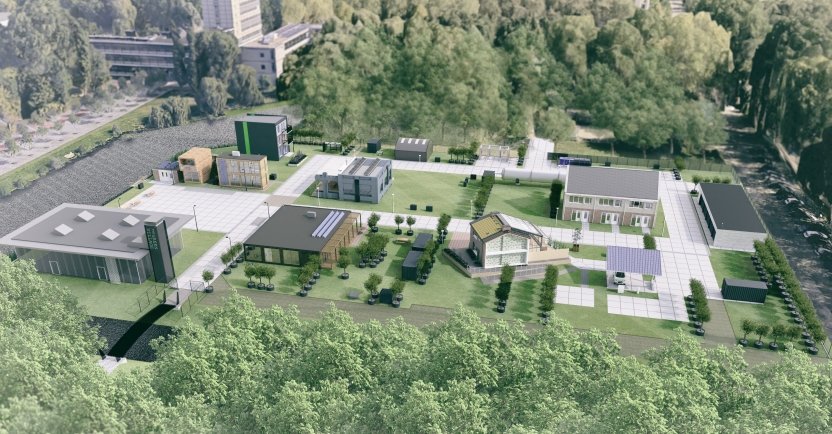Improving energy efficiency thanks to Direct Current (DC)

Rexel Netherlands takes part in a real-life research project at Delft University of Technology’s Green Village
Project background
Traditional Alternate Current networks generate energy losses and use large quantities of copper.
The use of Direct Current (DC) in buildings could theoretically improve the energy efficiency of distribution systems and applications while also reducing the amount of materials needed.
The Green Village, Delft University of Technology’s experimental campus, launched a real-life research project in partnership with Rexel Netherlands and Engie in order to test actual energy efficiency gains and the staged deployment of a new type of Direct Current network.
Project roll-out
In its first phase, the “DC Office” research project developed at the Green Village aims to assess the energy efficiency of an electric distribution network using a mix of DC and AC current to power an office building. By including solar panels in this test, which generate Direct Current, even greater savings could be realized. In its second phase, the building will be powered by Direct Current only.
Find out more about The Green Village
The Green Village, created by Delft University of Technology on its campus, is a unique innovation platform dedicated exclusively to real-life experiments in the field of sustainable development. This “living lab” brings together scientists, inventors, and entrepreneurs, as well as representatives of civil society and public authorities.
Its goal is to facilitate radical innovation and to accelerate the implementation of cutting-edge technologies within the market in order to respond to the most urgent societal challenges.
The platform is supported by the European Regional Development Fund, the Province of South-Holland, the municipality of Delft, Alliander, Gasterra, and many others.

